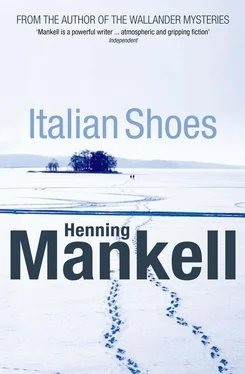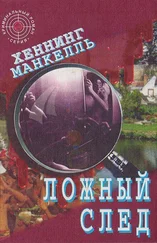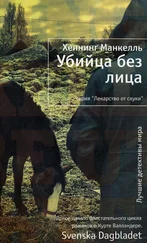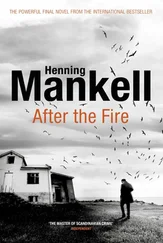Harriet took a swig from one of the bottles before I had time to start the engine. I said nothing, as there was nothing to say.
Then I suddenly remembered.
Aftonlöten. I remembered the name of the mountain close to the forest pool where I had watched my father swimming around like a happy walrus.
Aftonlöten.
I remember asking him what it meant. He didn’t know. At least, he didn’t answer.
Aftonlöten. It suggested pastures at eventide, and sounded like a word from the traditional songs shepherdesses used to sing as they brought their herds in to shelter for the night. It was an insignificant little mountain, barely a thousand feet high, between Ytterhögdal, Linsjön and Älvros.
Aftonlöten. I said nothing to Harriet as I was still not certain that I would be able to find my way to the pool.
I asked how she felt. We drove almost three miles before she answered. Taciturnity and distance are linked. It’s easier to be silent when you have a long way to go.
She said she wasn’t in pain. As that was an obvious untruth, I didn’t bother to ask again.
We stopped for something to eat as we approached the Härjedalen border. There was one lone car parked outside. Something about the cafe and the place as a whole perplexed me, but I couldn’t put my finger on why. There was a roaring fire burning in the timber-built cafe, and a smell of lingonberry juice. I remembered that smell from my childhood. I’d thought that lingonberry juice was so outdated now that it barely existed any more. But they served it here.
We sat down at one of the many empty tables and contemplated the timber-clad walls decorated with elk antlers and stuffed game birds. There was a cranium lying on a shelf. I couldn’t resist investigating. It was some time before I realised that it was a bear’s skull. The waitress, who had recited the menu for us, came in at that point and saw me standing there with the skull in my hand.
‘It just lay down and died.’ she said. ‘My husband used to want me to tell everybody that he’d shot it. But now that he’s no longer with us, I can tell the truth about it. It just lay down and died. It was lying on the shore at Risvattnet Lake. An old bear that simply lay down by a log pile and died.’
As she spoke, it dawned on me that I’d been here before. When I went on that trip with my father. Perhaps it was the smell of lingonberry juice that brought the distant memory to life. I’d been in this same cafe with my father. I was very young at the time; we’d had a meal and I’d drunk lingonberry juice.
Were all those stuffed birds mounted on the walls back then, staring down at hungry diners with their steely eyes? I couldn’t remember. I could see in my mind’s eye my father wiping his mouth with his serviette, checking the time, and urging me to hurry up and finish eating. We had a long way to go yet.
There was a map on the wall over the open fire. I checked it and found Aftonlöten, Linsjö Lake, and a mountain that I’d forgotten about.
It was called Fnussjen.
An impossible name — it must have been a joke. No more than eight hundred feet high, covered in trees, and somebody must have dreamt up a nonsense name for it. In stark contrast to Aftonlöten, which sounded attractive and even meaningful in an old-fashioned way.
We ordered beef stew. I finished before Harriet, and went to sit by the fire until she was ready.
She had some trouble in manoeuvring her walker over the threshold when we left the cafe. I tried to help her.
‘I can manage, thank you.’
We walked slowly through the snow back to the car. We had never lived together; but even so, people we met seemed to regard us as an old couple blessed with no end of patience with each other.
‘I haven’t the strength to do anything else today,’ said Harriet as we settled down in the car.
Her brow was covered in sweat as a result of the strain she had been subjected to; eyes half closed, as if she were about to fall asleep. She’s dying, I thought. She’s going to die here in the car. I’ve always wondered about when exactly I’m going to die. In my bed, in the street, in a shop, or down on my jetty, waiting for Jansson? But I’d never imagined myself dying in a car.
‘I need some rest,’ she said. ‘I shudder to think what will happen if I don’t get it.’
‘You’ll have to tell me what you can cope with.’
‘That’s what I’m doing. Tomorrow can be the day we go to the forest pool. Not today.’
I found a little guest house in the next town. A yellow building behind the church. We were welcomed by a friendly lady. When she saw Harriet’s walker, she gave us a large room on the ground floor. I would really have preferred a room to myself, but refrained from saying anything. Harriet lay down to rest. I thumbed through a pile of old magazines on a table before dozing off. A few hours later I went out and bought a pizza at a bleak takeaway cafe where the only customer was an old man muttering away to himself, with a greyhound slumped at his feet.
We sat on the bed and ate the pizza. Harriet was very tired. When she’d finished eating, she lay down again. I asked if she wanted to talk, but she merely shook her head.
I went out as dusk was falling, and wandered around the little town. Many shops were standing empty, with contact details in the windows for anyone interested in renting the premises. These advertisements were like cries for help from a small Swedish town in deep distress. My grandparents’ island was a part of this gigantic abandoned, unneeded archipelago lining the edge of Sweden, comprising not only islands along our coasts, but just as many villages and small towns in inland backwaters and in the forests. In this town there were no jetties for mooring and going ashore, no angry-sounding hydrocopters whipping up a whirlwind of snow as they approached with their cargo of post and junk mail. Nevertheless, wandering around this deserted place felt like walking around a skerry at the edge of the open sea. Blue television light spilled out of windows on to the snow; sometimes snatches of television sound could be heard, bits of different programmes leaking out from the windows. I thought of loneliness and all these people watching different programmes. Every evening people of all generations burrowed into different worlds, beamed down by the satellites.
In the old days, we used to have the same programmes to talk about. What did people talk about now?
I paused at what had once been the railway station, and tied my scarf more tightly round my neck. It was cold, and a wind was getting up. I walked along the deserted platform. A single goods wagon stood in a snow-filled siding, an abandoned bull in its stall. In the faint light from a single lamp I tried to read the old timetable still attached to the station wall in a case with a cracked glass window. I checked my watch. A southbound train would have been due at any moment. I waited, thinking that stranger things had been known to happen than a ghost train materialising out of the darkness and heading for the bridge over the frozen river.
But no train came. Nothing came. If I’d had a bit of hay with me, I’d have left it in front of the old goods wagon. I resumed my walk. The clear sky was full of stars. I searched for some kind of movement, a shooting star perhaps, or a satellite, perhaps even a whisper from one of the gods who are alleged to live up there. But nothing happened. The night sky was mute. I continued as far as the bridge over the frozen river. There was a log lying on the ice. A black line in the middle of all the white. I couldn’t remember the name of the river. I thought it might be the Ljusnan, but wasn’t sure.
I remained standing on the bridge for what seemed ages. I suddenly had the feeling that I was no longer alone under those high iron arches. There were other people there as well, and it dawned on me that what I could see was in fact myself. At all ages, from the little boy who had scurried around and played on my grandparents’ island, to the me who, many years later, had left Harriet, and eventually the man I was now. For a brief moment I could see myself, as I had been and as the man I had become.
Читать дальше












